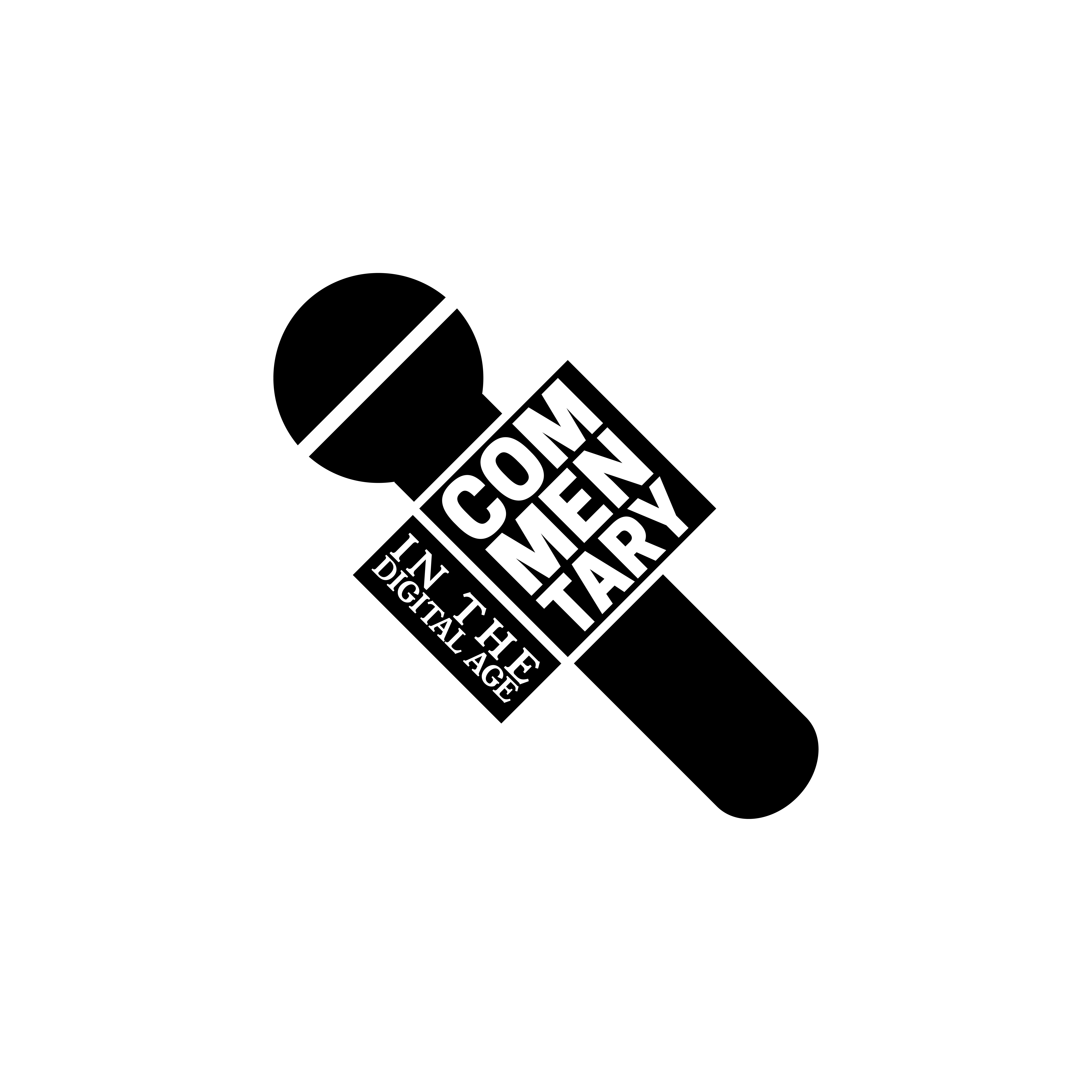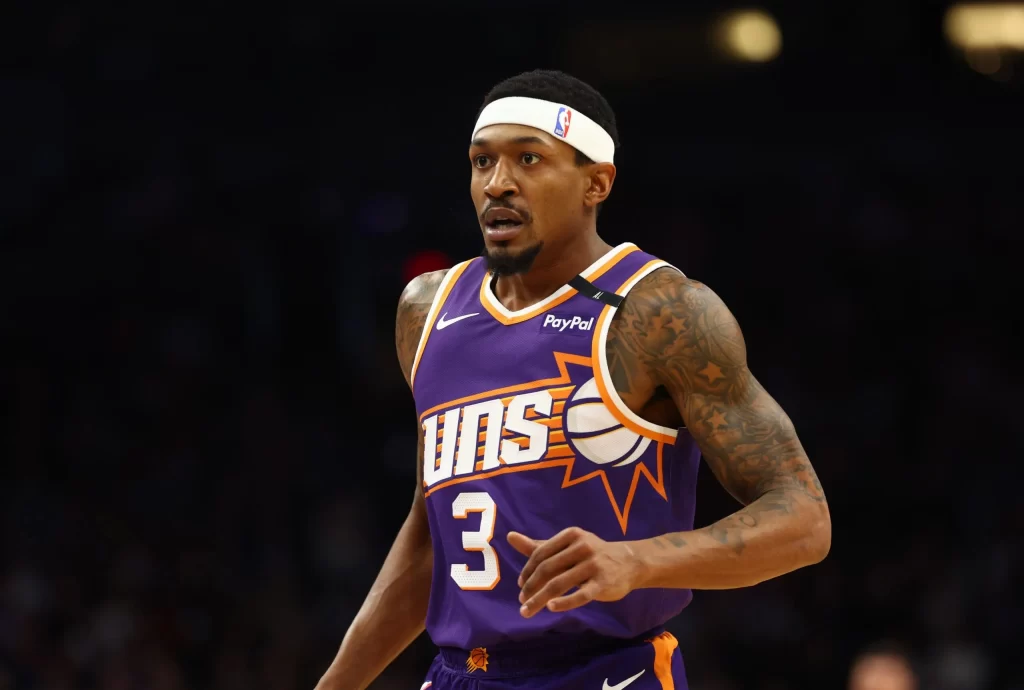The Phoenix Suns just wrapped up a nightmare 2024-25 season, going 36-46 and missing the playoffs despite having the largest payroll in the league, and Bradley Beal is one of the most appropriate figures to blame.
Beal, in his age 31 season, missed 29 games due to injury for the second consecutive season in Phoenix. Although he averaged 17 points per game on nearly 50% shooting—solid numbers on surface level—his contributions to the Suns struggles become much more apparent when you dive beneath the surface.
For starters, the lineup fit with Beal alongside fellow stars Devin Booker and Kevin Durant never worked out. All three players like to operate as primary ball handlers who mainly opt for the mid-range jump shot. With Beal being the third option behind Durant and Booker, he was often relegated to an uncomfortable playstyle without the ball in his hands, and frequently hindered the offense’s flow because of it. Additionally, Beal was a liability on the defensive end and was often seen showing a lack of effort.
In the Suns tenure with Beal, Booker and Durant on the roster, they are a dominant 32-14 in games where Booker and Durant played without Beal. Beal’s on/off rating during his time in Phoenix is -11.5, meaning that the Suns are about 11 points worse when Beal is on the court compared to when he is on the bench (per 100 possessions).
The Suns brass must’ve noticed these statistics as well, as coach Mike Budenholzer took Beal out of the starting lineup in favor of rookie defensive-specialist Ryan Dunn at points throughout the season, marking the first time Beal has been benched since the 2015-16 season. All of this culminated in a reported altercation between Beal and Budenholzer—one of many supposed locker room incidents for the Suns during the season—with Beal taking slight to Budenholzer requesting he, “play more like Jrue Holiday.”
While it’s understandable why someone with Beal’s pedigree would take issue with being told to play like anyone other than himself, he genuinely needs to start playing like Jrue Holiday if he wants to save his reputation—and his job in Phoenix.
That’s because I haven’t yet mentioned the elephant in the room as to why Beal’s status with Phoenix and the league as a whole is contentious: his contract.
Before being traded to the Suns, the Washington Wizards extended Beal to a 5-year, $251 million contract. As of today, Beal still has two years left on that deal, making an average salary of $55 million per year for the rest of it. That makes him the fifth highest-paid player in the entire NBA, despite the fact that his contributions to winning basketball are negative.
Oh yeah, his contract also includes a no-trade clause, something only he and LeBron James have.
This means that Beal has the right to veto any trade he’s included in, holding the power over his own organization. In fact, Beal had to approve the trade that got him to Phoenix from Washington in the first place.
This puts the Suns in a precarious position going into next season. They must make significant changes to their current roster, ideally trading Beal, but not only do they have to find a suitor that is willing to take on the worst contract in NBA history, but they also have to hope Beal himself accepts the trade to go through—something he notably hasn’t budged on, citing his lack of desire to uproot his family again.
In fact, this very scenario already played out during the most recent trade deadline in February. The Suns were rumored to be calling every team trying to unload Beal, perhaps to even get back Heat star Jimmy Butler in return. When reporters asked Beal about the rumors, he infamously said, “I hold all the cards.” Upon saying that, what little momentum of a Beal trade happening was completely squashed.
As a result, the consensus now is that a Bradley Beal trade remains to be impossible, and that the Suns will have to bite the bullet and trade Kevin Durant instead to shake up the roster. Beal seems to be so stuck on the Suns roster that it’s even been reported that the front office is flirting with the idea of a historical buyout of Beal’s contract, eating up the $110 million he’s owed just to get him off the team.
Well, I’m here to propose that a Bradley Beal trade not only is possible, but can work in a way that benefits all who are involved, including Beal himself.
THE TRADE: Send him back to Washington.
Phoenix receives: Jordan Poole (2 year, $32M per remaining), Marcus Smart (1 year, $21M remaining)
Washington receives: Bradley Beal (2 year, $55M per remaining), 2027 first-round pick (via UTA, CLE, or MIN), 2029 first-round pick (via UTA, CLE, or MIN)
Why the Suns do it
The reason why the Suns do this trade is obvious for anyone who has been reading this article: to get Bradley Beal off the roster. After the trade, the Suns would have better flexibility with their salary table and roster, and can then decide whether or not it would be logical to also move Durant.
The return for Beal isn’t too bad either. Jordan Poole has shown his flaws as a player, but the Suns can utilize him as a luxury backup to Booker and hope he returns to form as a microwave scorer off the bench like he was in Golden State early in his career.
Additionally, Marcus Smart is a proven, defensive-minded guard that can fit next to Booker in the backcourt perfectly. He’s been injury-riddled and may be a little past his prime, but at the very least he’s on an expiring contract—meaning Phoenix can cut bait with him next offseason if he doesn’t work out, or use him as salary filler in a future trade if needed.
Finally, it’s worth noting that the Suns must attach two of the three first-round picks they acquired from Utah at the most recent trade deadline in order to entice Washington into taking on Beal’s contract. It’s not ideal for a team that already has dismal future draft capital, but it’s a price that needs to be paid to make up for past front office mistakes.
Why the Wizards do it
The Wizards are coming off of their second consecutive last-place finish in the Eastern conference, failing to win 20 games in each of those seasons. They’re firmly entrenched as one of the laughing stocks of the league, but they have a respectable core of young players and a high pick in the upcoming draft, as well. Perhaps Cooper Flagg could be a Wizard two months from now.
As such, their current goal isn’t to be competitive and win now, but rather continue to keep developing their young players and pick high in the draft until a star breaks out.
So why trade for a 31-year-old Bradley Beal?
Well the first and most simple reason is that the Wizards send out two players in this trade and only bring back one, creating another roster spot and more minutes for their young players. Of course, the main prize for them in this trade is adding two more future first-round picks, an asset that any rebuilding team loves.
Additionally, Poole and Smart have no impact on the direction this team is trying to go and only hurt the development of their young players. Poole especially has a ball-dominant, chaotic playstyle that is not conducive to teaching young players the right way to play the game. He is also on a pretty ugly contract of his own, so the Wizards wouldn’t mind parting ways with him.
The cherry on top? Beal spent 11 seasons in Washington and became a fan favorite. His presence on the team will give the fanbase something to cheer for and hold them over for the
next couple of non-competitive seasons. Beal is also someone who has proven to be one of the greatest influences for young players in the entire league, just ask Ryan Dunn. He has a natural aptitude to lead and help young players, which would manifest in the young Wizards locker room in a much more positive way than it has with Poole and Smart.
Why Bradley Beal waives his no-trade clause
The most important piece of the puzzle. He does hold all the cards, after all.
That being said, for Beal it’s very simple: he should see the writing on the wall that with his current contract, production and playstyle, there’s no pathway for him to be on a contending team. Not with Phoenix, not with anyone else.
He shouldn’t be a scapegoat anymore either. Beal is a good player, he just happened to have been given a ludicrous contract—by a GM that doesn’t even have a job anymore, mind you—that significantly hinders the structure of a roster. As a result, basketball fans, Suns fans especially, have been nasty to him. Heckling of his wife and kids even made headlines this season.
Beal doesn’t deserve this, and he more than anyone should see that. Going back to Washington would mean going back to a place of familiarity. A place where he was drafted at 19, and lived until he was 29. A place where the fans love him.
He wouldn’t have to uproot his life as much as he would have to if he was traded to a completely new city. Most importantly, he would be playing the game he loves in a low-pressure environment with the freedom to play his style, and leave an impressionable mark on the next generation.
It’s a no-brainer to me.


